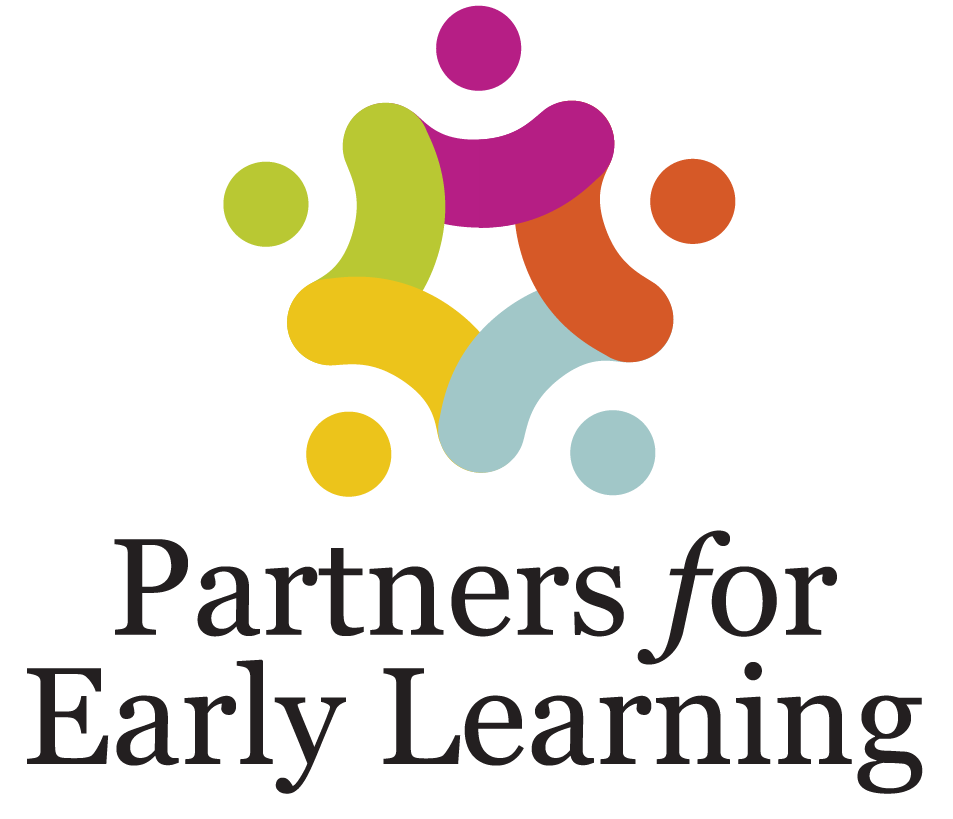Communication
Communication Milestones For Your Child
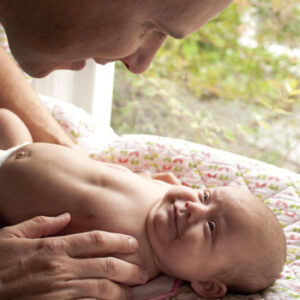
Language and Communication: Overview (0-6 Months)
People are born to talk to each other, and nowhere is this more apparent than in a developing child. Babies
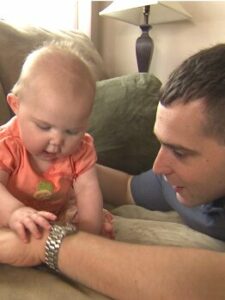
Getting In Tune with Baby
How do I know what my baby wants? Everyone knows that babies cry when they are upset. They smile when
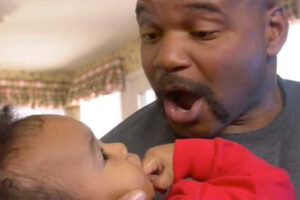
Parentese: Why It’s Never Too Early to Start a Conversation (0-6 Months)
Researchers call the special way we talk to babies “motherese” or “parentese.” This sing-song speech, often accompanied by exaggerated facial
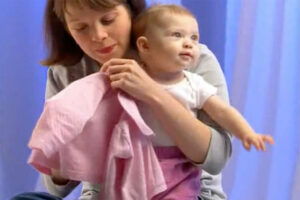
Talking to Baby (0-12 Months)
How do you talk to your baby? Would you say, “hellooooo, sweeeeetie! How’s my baaabeee? Such a pretty baaabeee.” Does
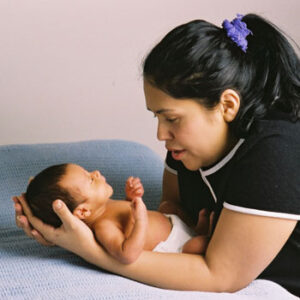
Prefers Sounds of Familiar Language to Those of Other Languages (0-3 Months)
At birth, infants can respond to human voices. They are also capable of distinguishing between the sounds of different languages,

Can Discriminate between Syllables within Words (0-4 Months)
Within the first few days after birth, infants are sensitive to the stress patterns or rhythms of the words they
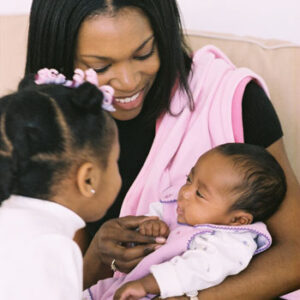
Can Discriminate Mother’s Voice from Other Women’s Voices and Prefers Her Voice to Other Women’s Voices (0-4 Months)
At birth, infants can respond to human voices. They are also capable of distinguishing among the voices of different people,

Capable of Spontaneous “Ooh” Sound (0-4 Months)
In their first months, infants start making sounds other than crying. Cooing sounds often occur when a baby is quiet,

Heavy Reliance on Communication through Crying, which Can Occur for Several Hours a Day (0-4 Months)
For the first several months, crying is an infant’s most common form of vocalization. Some cries may sound different from
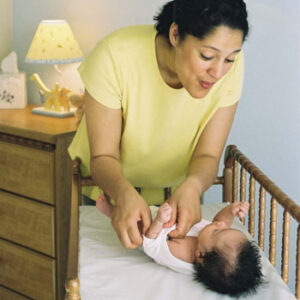
Pays More Attention to Human Voices than to Other Sounds (0-4 Months)
At birth, infants show the ability to respond to human voices and speech. In one experiment, infants only a few

Smiles at the Sound of a Familiar Voice (0-4 Months)
Babies prefer human voices to other sounds and are especially drawn to the voices of their caregivers. After 1 month,
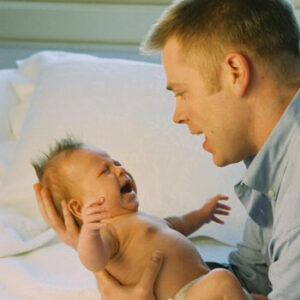
Talking with Infants (0-9 Months)
Infants start communicating right from birth. Crying, smiling, vocalizations, looking at your face, and looking away are all ways your

Babbling Commences (1-3 Months)
Many infants begin babbling routinely at around 4 months, often entertaining themselves for long periods by producing new sounds (for
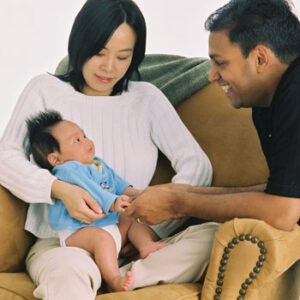
Attempts to Imitate Some Sounds (1-4 Months)
After 2 months, some infants begin repeating a few of the exaggerated vowel sounds they hear when their caregivers speak
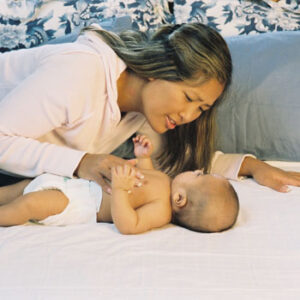
Coos Back and Forth with Caregiver (1-4 Months)
In their first months, most babies begin to make cooing sounds. Some believe infants at this age begin to participate
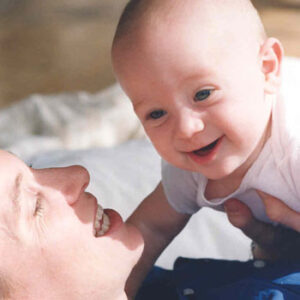
Begins Grouping Language Sounds into Specific Categories (1-6 Months)
Long before babies begin to learn specific words, they engage in an important sound-sorting process that enables them to distinguish
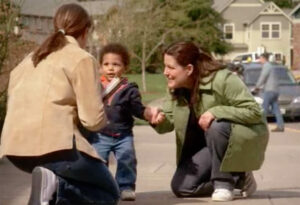
Careful, Frank: Communicating through Emotional Expressions (2-24 Months)
As adults, we do this all the time to obtain feedback from the world around us, but it’s fascinating to
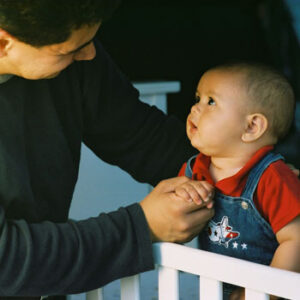
Begins Lip Reading (2-8 Months)
When infants are spoken to, they will often pay special attention to a person’s lip movements. Even at 10 to
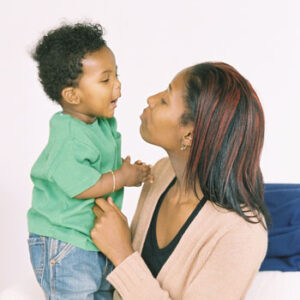
Language and Communication: Overview (6-12 Months)
Between 6 and 12 months, babies are actively processing the language sounds they hear. They are learning to take “turns”
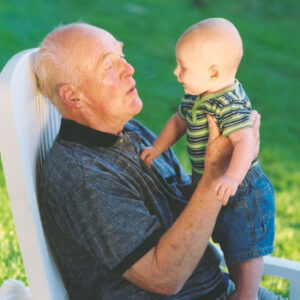
Capable of Responding to Own Name (4-5 Months)
A baby’s name is generally used much more often than other words. Studies show that babies are early as 4
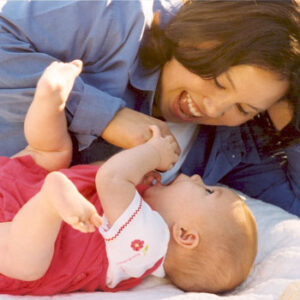
Attempts to Respond to Sounds by Making Sounds (4-7 Months)
By 4 months, many babies begin listening for the individual sounds in words, noticing how vowels and consonants combine into
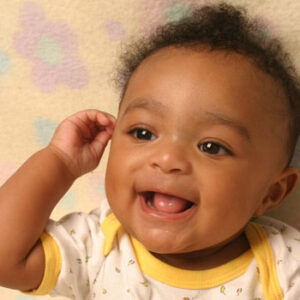
Can Verbalize Happiness and Displeasure (4-7 Months)
Babies begin voicing their emotions and desires frequently at 5 or 6 months, laughing to show pleasure and crying when
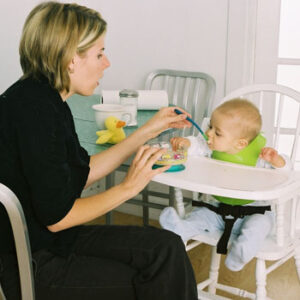
Capable of Responding to “No” (5-7 Months)
Although children don’t yet understand what words mean, they may stop doing something when a parent or caregiver says “no.”
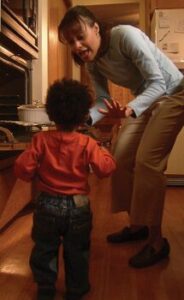
Mommy, Is This Okay? (6-12 Months)
Guiding your baby with your facial expressions and words. Eleven-month-old Cameron can walk, and he can go just about anywhere
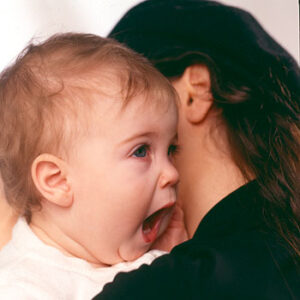
Responds To and Begins To Map Sounds of Language (6-12 Months)
Between 6 and 12 months, babies can literally “hear” the specific sounds of all languages spoken. When compared to adults,
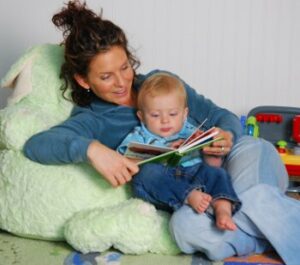
Snuggle Up for Reading (6-24 Months)
“Mommy! Mommy! Book! Book!” he says before you tuck him in for an afternoon nap. You grab his favorite book,
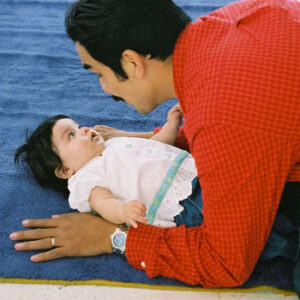
Babbling Includes Short Strings of Consonants (6-9 Months)
By 4 months, babies begin listening for the individual sounds in words, noticing how vowels and consonants combine into syllables,
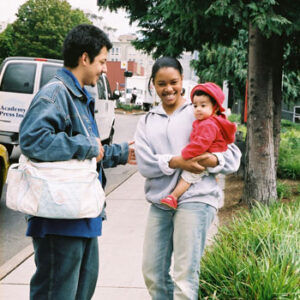
Learns to Wait until Someone Else Is Finished Talking before Beginning to Speak (7-10 Months)
During their first 6 months, infants will often coo or babble while their caregivers are talking to them. By 7
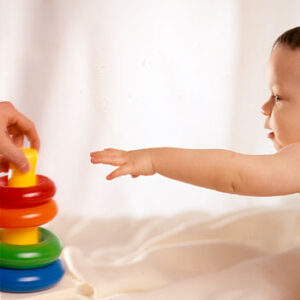
Can Respond to Simple Verbal Requests (8-10 Months)
Even though babies often say their first words at around 12 months, most have learned quite a few words by
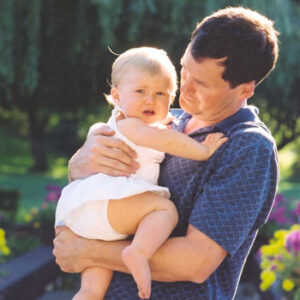
Begins to Use Gestures and Sounds to Communicate (8-11 Months)
By 8 to 10 months, babies attempt to communicate with others using gestures and pre-verbal sounds. There are two common
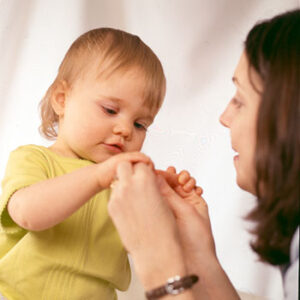
Capable of Uttering “Dada” and “Mama” (8-12 Months)
Between 8 and 12 months, babies may stumble on words like “mama” and “dada” accidentally, learning what they mean when
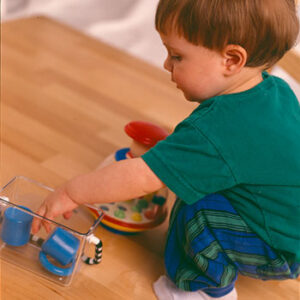
Begins to Understand that Words Can Refer to Physical Objects (9-12 Months)
Around 9 months, many infants understand that some words refer to specific objects. Although they can’t yet speak words, many
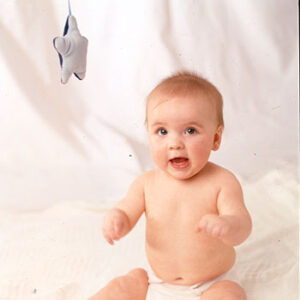
Babbling Appears Less Random; Inflections Apparent (9-14 Months)
Between 8 and 12 months, the coos, gurgles, and other “baby” sounds become more like the sounds of the home
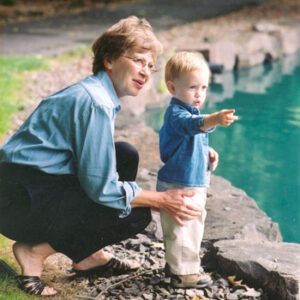
Language and Communication: Overview (12-24 Months)
Around their first birthdays, many children say their first words. Within six months or so, many children have a “word

Begins to Imitate Spoken Words (10-14 Months)
At 10 months, some infants will begin to repeat back words they hear, although they may not yet know that
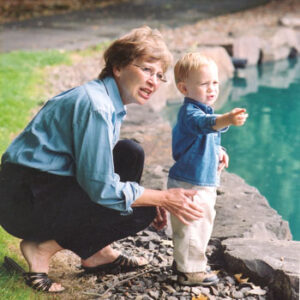
First Words Are Often Spoken at This Time (12-19 Months)
The remarkable achievement of using words to represent things usually begins around 12 months, but babies can vary by several
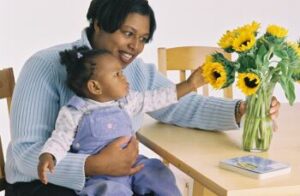
What a Chatterbox
Naming objects is the First step If you’ve spent much time around young children, you’ve probably had conversations like this:
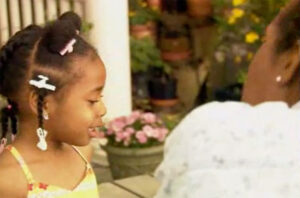
Keep Talking: The Importance of Conversation (12-60 Months)
Talking with an 18-month-old is hard for those who don’t speak toddler language! Some words toddlers say sound just right.
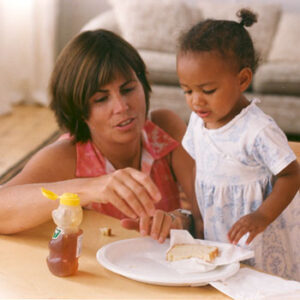
Recognition of Sounds of Own Language Complete; May Have Difficulty Discriminating Certain Sounds of Foreign Languages Later (13-22)
Between 6 and 12 months, babies can literally “hear” the specific sounds of all languages spoken. When compared to adults,
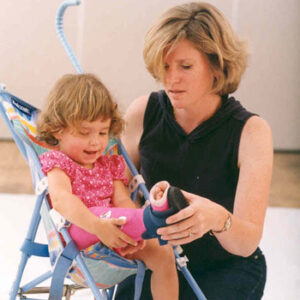
Identifies Names of Familiar People, Objects, and Body Parts (14-24 Months)
Although there is a tremendous variation in the age that toddlers begin speaking recognizable words, their first few words generally
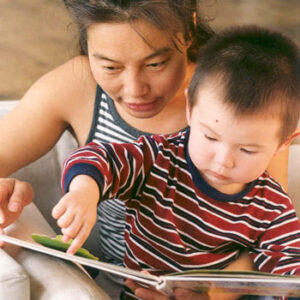
Can Correctly Identify a Picture with its Spoken Name (14-25 Months)
Toddlers make visible progress in their comprehension skills early in their second year, demonstrating their growing understanding of language with
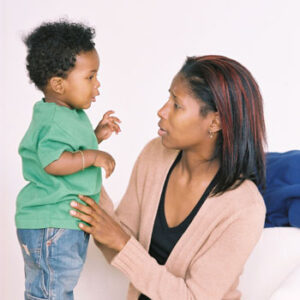
Commonly Uses Two to Four-Word Sentences (15-25 Months)
At the end of their second year, toddlers begin communicating in two- to four-word sentences. This process begins when children
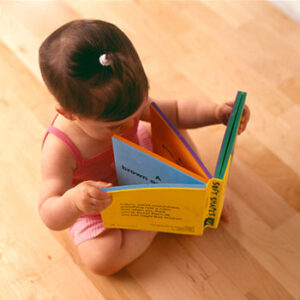
Typically Has a Vocabulary of 200 Words (16-24 Months)
Research has shown that children at 2 years can have a vocabulary of around 200 words, although some normal children
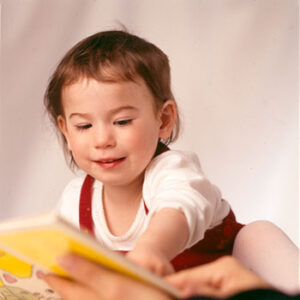
A Rapid Increase in Vocabulary Begins Now: Infants Add 10-20 Words per Day during This Period (18-24 Months)
Sometime around 18 months, most children experience a “word spurt” (or “naming explosion”) that leads to large increases in their

Begins to Use Combinations of Words in Meaningful Ways (20-26 Months)
Before they reach 20 months of age, many children begin to add single words together when they speak. These early
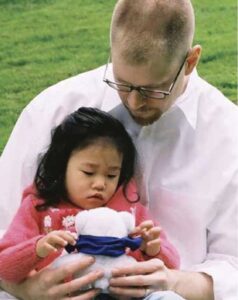
Language and Communication: Overview (2-3 Years)
In their third year, children’s language skills continue to grow at an astonishing rate. They begin to use pronouns (“I”
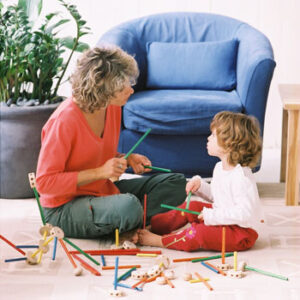
Can Utter a Grammatically Correct Declarative Sentence (24-31 Months)
As children learn to speak in sentences, they also begin to use basic forms of correct grammar. Although children may
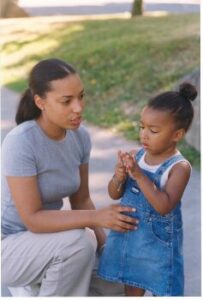
Keep Talking
Building language every day. Learning to talk is harder than it seems. If your child makes mistakes, don’t worry, he
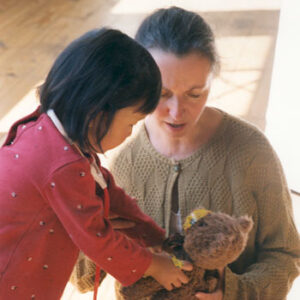
Strangers Can Understand Most of the Words Spoken by the Toddler (26-36 Months)
By age 3, most children speak clearly enough that strangers can understand most of what they say. Despite this, children may
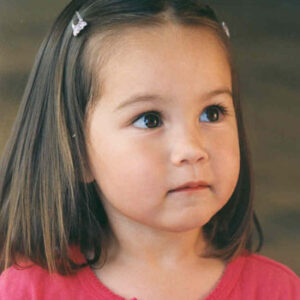
Uses Pronouns (I, You, Me, We, They) and Some Plurals (26-36 Months)
During their third year, children begin using pronouns and plurals in their speech and understand the concept of “mine.” They
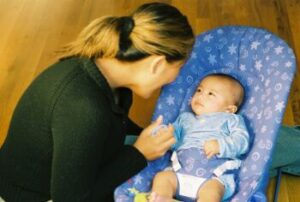
Look Who’s Talking
Is that babbling and cooing designed to make us melt? The house is quiet. The baby has gone down for

Two Languages Spoken Here
Learning two languages“Daddy? Can I have some cookies?” Maria asks.“I don’t know Sweetheart. Go ask your mom.”Maria catches her mom
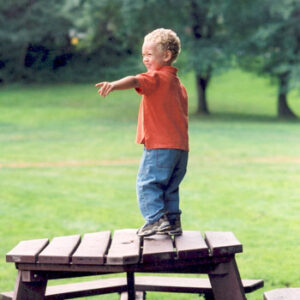
Understands Physical Relationships such as Under, Over, and In (28-37 Months)
It takes some time before young children can grasp the meanings of words that describe physical relationships. But during the
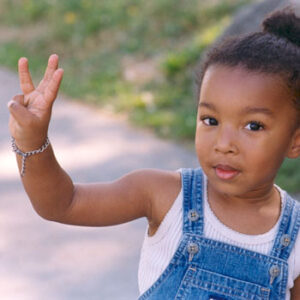
Can Say Name, Age, And Gender (29-38 Months)
Most children delight in knowing and proclaiming their name and age. References: Shelov, S. P. (Editor-in-Chief). (2004). Caring for Your
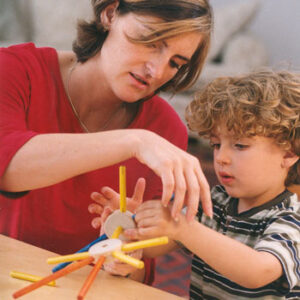
Understands Most Of What Adults Say (30-36 Months)
By age 3, children can generally understand most sentences and most of what adults say. References: Shelov, S. P. (Editor-in-Chief).

Vocabulary Consists Of 1,000 Words (32-39 Months)
Around age 3, most children have a vocabulary of around 1,000 words. However, this may vary by a large amount,
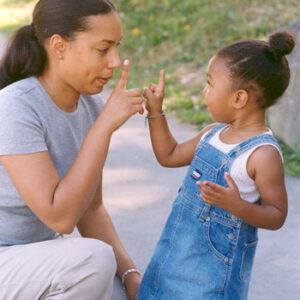
Language and Communication: Overview (3-5 Years)
It’s storytime! By age 5, most children can communicate effectively, and many enjoy telling creative stories. Their sentences get longer
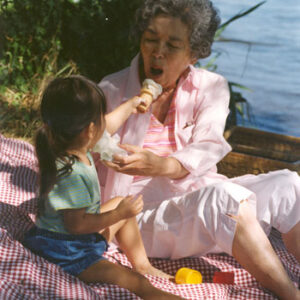
Can Ask a Grammatically Correct Question (35-41 Months)
Before age 3, children’s questions are generally incomplete, depending on words like “where” or “what” and a rising tone at
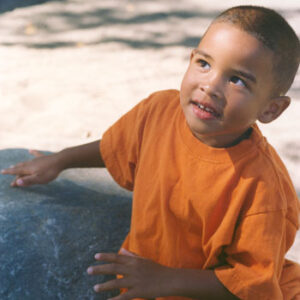
Inserts Articles, Auxiliary Verbs, and Grammar Not Previously Seen (37-44 Months)
In the third year, children use language in increasingly sophisticated ways. This includes making sentences that use articles (“a” or

Understands the Concept of “Same” and “Different” (39-48 Months)
During their fourth year, children begin to compare things in terms of similarities and differences. This is an important analytical
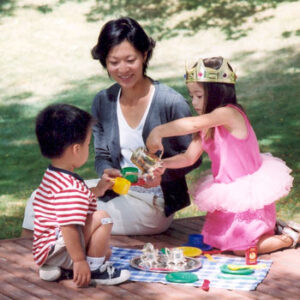
Capable of Speaking in Sentences of Five to Six Words (40-48 Months)
At age 3, most children have active vocabularies of 300 or more words, talk in sentences of five or six
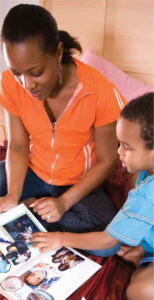
Speaks in Complex Sentences (51-59 Months)
Language skills blossom around age 4, and preschoolers can now pronounce most sounds of the English language. Their vocabularies expand to
